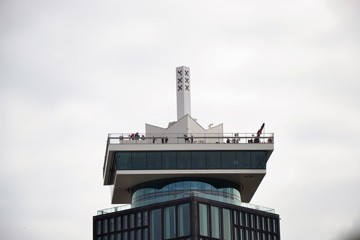
An arbitration award is issued in the Netherlands by an arbitration institute, such as the Netherlands Arbitration Institute (NAI). Internationally, there are other arbitration tribunals such as the International Chamber of Commerce (ICC). A foreign arbitral award may not be enforced in the Netherlands until the Interim Injunction Judge of the District Court in which the place of arbitration is situated has, at the request of one of the parties, granted leave for that purpose. The Interim Injunction Judge is therefore not only in charge of urgent matters, such as interim relief proceedings in the Netherlands, but also of whether leave is to be granted. Leave to appeal to the Interim Injunction Judge is recorded on the original arbitral award or included in an order. In legal jargon, it means that before the enforcement of foreign arbitral awards in the Netherlands can be conducted, the court in the country of enforcement must issue what is known as an ‘exequatur‘. This means that the arbitral award also becomes enforceable in the specific country and enforcement of the foreign award can begin. Our litigation lawyers in Amsterdam will discuss this enforcement and the grounds on which it can also be refused in more detail below.
What is the definition of arbitration?
Arbitration is best defined as a method of dispute resolution to resolve a conflict, without going to the (civil) courts. In arbitration, the judge does not decide, but experts (also called arbitrators) decide on the present dispute. Arbitration in the Netherlands is therefore an alternative to civil proceedings before the court. The experts usually have knowledge of a particular industry (for example, the manufacturing industry). Together they form the so-called arbitration board, and the parties are free to appoint their own experts. This must be an odd number to avoid a stalemate. The decision of these experts is a so-called binding opinion. Particularly in the business world, parties are more likely to resort to arbitration. The ruling is called an arbitral award and our lawyers will discuss its enforcement in more detail below, as well as the conditions attached to it.
United Nations Convention on the Recognition and Enforcement of Foreign Arbitral Awards (New York, 10 June 1958)
The lawyers at MAAK in Amsterdam more often point out the so-called United Nations Convention on the Recognition and Enforcement of Foreign Arbitral Awards (New York, 10 June 1958)(in short: New York Convention (1958)) when entering into a commercial agreement. This is not without reason. The 1958 New York Convention governs the recognition and enforcement of arbitral awards made in the territory of a state other than the state where recognition and enforcement of those awards is sought.
The New York Convention is not as well known to all entrepreneurs, but it has an important meaning when it comes to international contracting. If you do business internationally, pay particular attention to whether the party you are contracting with is established in a member state that is a party to the New York Convention.
WHAT IS THE ADVANTAGE OF ARBITRATION OVER A DUTCH JUDGE?
There is a substantial advantage to contracting under a Dutch arbitration clause in international contracts, (or when drafting international purchase terms or conditions of sale): many member states are affiliated. This means that an arbitral award, even if made in the Netherlands, is easier to enforce in (especially) non-European ones. That is a substantial difference from a Dutch or other European award, which in that sense has a more limited reach. It is for this reason that our lawyers in contract law often point this out and we see more and more companies now embracing this.
Another advantage of arbitral may be that arbitrators enjoy more sector-specific knowledge and that proceedings are more expeditious. Also, judgments of an arbitration institute are not public, which is more often the case in civil courts. In short, arbitration can be a good alternative to going to the civil court and you can prepare for this in general terms and conditions or in a commercial contract. This will prevent a lot of misery when a business dispute arises with a trading party located ‘far from home’.
In many (national and international) commercial contracts, arbitration is agreed upon to settle disputes. This dispute resolution then replaces governmental jurisdiction. The advantages of arbitration are often mentioned: the arbitrators have more knowledge of a specific industry, the procedure is faster and the decision is not public.
WHEN CAN A FOREIGN ARBITRAL AWARD BE ENFORCED?
A foreign arbitral award cannot be enforced in the Netherlands only under a number of conditions. The Interim Injunction Judge of the District Court reviews the circumstances of each case presented by an attorney. This Interim Injunction Judge can only ignore the enforcement of the arbitral award in the Netherlands if ‘after a summary investigation’ it appears to the Interim Injunction Judge that it is likely that the arbitral award will be set aside. This specifically concerns one of the grounds mentioned in article 1065, paragraph 1 of the Code of Civil Procedure (Rv), or revoked on one of the grounds mentioned in article 1068, paragraph 1, or when a penalty payment has been imposed in violation of article 1056. In the latter situation the refusal will only concern the execution of the penalty.
GROUNDS FOR ANNULLING AN ARBITRAL AWARD IN THE NETHERLANDS
Annulment of an arbitral award in the Netherlands can only take place on one or more of the following grounds, as enumerated in Article 1065 of the Code of Civil Procedure:
a. there is no valid arbitration agreement;
b. the arbitral tribunal is constituted in violation of the applicable rules;
c. the arbitral tribunal did not comply with its mandate;
d. the judgment is not signed or reasoned in accordance with the provisions of Article 1057;
e. the judgment, or the manner in which it was reached, is contrary to public policy.
REVOCATION OF AN ARBITRAL AWARD IN THE NETHERLANDS
Revocation of an arbitral award in the Netherlands is anchored in Dutch law in Article 1068 of the Code of Civil Procedure and can only take place on one or more of the following grounds:
a. the award is based in whole or in part on fraud discovered after the award, committed by or with the knowledge of the other party in the arbitration proceedings;
b. the judgment is based in whole or in part on documents that turn out to be false after judgment;
c. a party has obtained, after the award, documents that would have influenced the decision of the arbitral tribunal and were withheld through the fault of the other party.2
Please keep in mind that there are deadlines for making a claim. Our lawyers in Amsterdam will be happy to explain these complex issues.
NO LAPSE OR LIMITATION FOREIGN ARBITRAL AWARD
It is good to know that the enforcement of a foreign arbitral award in the Netherlands does not concern a time-barred arbitral award or a legal claim that has lapsed. In an earlier judgment of the Supreme Court, the question was whether a time-barred arbitral award from Russia, i.e. no longer enforceable there, could still be enforced in the Netherlands. Because the law did not oppose this, it was still possible.
WHAT COSTS ARE INCURRED IN THE ENFORCEMENT OF ARBITRAL AWARDS?
You can divide the costs incurred in enforcing an arbitration award into three components: 1. The court registry fees 2. The attorney fees and 3. The cost of a bailiff at the time of enforcement.
If no annulment or revocation of the arbitral award is sought then the costs are often clear and easy to estimate. This is different when proceedings are conducted concerning the enforcement (the so-called enforcement dispute). Be well informed about this by a lawyer specialised in procedural law.
Dutch LITIGATION LAWYERS FOR THE ENFORCEMENT OF A FOREIGN ARBITRAL AWARD
Are you looking for a Dutch arbitration lawyer for the enforcement of a foreign arbitral award in the Netherlands? A lawyer with excellent knowledge of Dutch procedural law? An arbitration law firm in the Netherlands with knowledge of international law? A law firm that knows what it means when an arbitral award is enforced in the Netherlands?
Our litigation lawyers for the enforcement of a foreign arbitral award in the Netherlands, are specialists in the field of procedural law. The experienced litigators will help you through the entire leave procedure, from the phase of getting leave from the preliminary relief judge (to execute the foreign arbitral award), to the execution. Conversely, we assist you when you are faced with a foreign arbitral award, and you want to oppose its execution by having it set aside or revoked.







